Navigating the complex world of immigration can be a daunting task, especially when it comes to consular processing.
This article explores what consular processing is, its purpose, eligibility requirements, necessary steps, benefits, and challenges.
For Florida immigrants seeking to obtain a visa or green card, understanding the ins and outs of consular processing is crucial.
From faster processing times to potential delays and denials, we cover it all. Let’s dive in and unravel the intricacies of consular processing.
Key Takeaways:
- Eligibility for consular processing requires meeting specific requirements, such as having an approved immigrant petition and submitting required documents.
- Consular processing offers benefits such as faster processing times, more control over the process, and the ability to travel outside the US during processing.
- Potential challenges of consular processing include potential delays or denials, additional expenses, and difficulty obtaining necessary documents.
What is Consular Processing?
Consular processing is a method utilized by the United States to issue green cards to individuals residing outside the country. The process involves multiple steps, commencing with the submission of an immigrant petition and ending with an interview at a U.S. embassy or consulate.
This procedure is essential for individuals living outside the U.S. who are seeking permanent residency. Consular processing typically initiates with a petition filed by a sponsoring family member or employer on the applicant’s behalf.
Subsequent stages include the review by the National Visa Center, gathering the necessary documents, and arranging an interview at the consulate. In contrast to Adjustment of Status, which is conducted while the individual is inside the U.S., consular processing necessitates the applicant to attend an in-person interview at a U.S. embassy or consulate abroad.
What is the Purpose of Consular Processing?
The main purpose of consular processing is to enable eligible individuals to submit an application for an immigrant visa through a U.S. embassy or consulate. This typically involves completing the DS-260 form and attending a visa interview.
Consular processing is essential for ensuring that foreign nationals who meet the requirements for immigrant visas have a well-defined and organized process for legally entering the United States. By following the necessary steps in consular processing, individuals can prove their eligibility and their commitment to adhering to U.S. immigration laws.
The U.S. embassy, as a significant participant in this procedure, acts as the official platform for conducting visa interviews and granting immigrant visas to successful applicants, helping with the transition to permanent residency in the United States.
Who is Eligible for Consular Processing?
Eligibility for consular processing generally includes individuals who have an approved immigrant petition and are living outside the United States, such as family members of U.S. citizens or those who do not qualify for Adjustment of Status.
The approved immigrant petition is typically filed by a sponsoring relative, employer, or in some cases, the individual themselves. U.S. citizens play a crucial role in sponsoring family members for immigration purposes, as they can petition for parents, spouses, children, and siblings.
Consular processing involves attending an interview at a U.S. embassy or consulate in the individual’s home country. It is essential to note that consular processing differs from Adjustment of Status, as the latter is for individuals who are already in the United States and seeking to adjust their status to that of a permanent resident.
What are the Requirements for Consular Processing?
The requirements for consular processing consist of submitting various supporting documents, undergoing a medical examination by an embassy-approved physician, and providing information about any criminal record.
Supporting documents typically include the applicant’s passport, birth certificate, marriage certificate (if applicable), police certificates from all countries resided in for six months or more since the age of 16, and proof of financial support. The medical examination process usually includes a physical exam, vaccinations, and screening for communicable diseases.
It is important to disclose any criminal record during consular processing as failure to do so can lead to visa denial or potential legal consequences. Being upfront about any previous offenses enables the authorities to make informed decisions regarding the visa application.
What are the Steps of Consular Processing?
The process of consular processing includes various essential stages, beginning with the submission of an immigrant petition, followed by the National Visa Center (NVC) processing the application, providing necessary documentation, attending an interview at a U.S. consulate, and finally obtaining the visa.
1. Filing the Immigrant Petition
The initial step in consular processing involves submitting an immigrant petition, a task often overseen by an immigration attorney to ensure accurate completion and submission of all paperwork.
Having an experienced immigration attorney to navigate this process is crucial, as they can assist in determining the appropriate visa category for the individual’s circumstances. The attorney can aid in collecting the necessary supporting documents, such as proof of relationship, financial records, and other required paperwork requested by the consulate.
They play a significant role in preparing the applicant for consular interviews, ensuring the information provided is precise and consistent. Collaborating closely with an immigration attorney enhances individuals’ prospects of a favorable outcome in their consular processing journey.
2. Waiting for a Decision
Following the submission of the immigrant petition, applicants will need to await a decision from the National Visa Center (NVC), the entity responsible for processing and reviewing the petition to ensure compliance with all requirements.
During this interim period, applicants may find it necessary to assemble additional documentation that the NVC could request to further substantiate the information provided in the petition.
Upon completion of their review, the NVC may arrange for an interview at the U.S. embassy or consulate in the applicant’s country of origin. It is critical for applicants to remain informed about all communications from the NVC and promptly address any inquiries to prevent any delays in the process.
3. Submitting the Required Documents
After the immigrant petition receives approval, individuals must submit several supporting documents along with the DS-260 form to advance their application.
The typical supporting documents required include a copy of the passport biographical page, birth certificate, marriage certificate (if applicable), police clearance certificates, and proof of financial support.
Completing the DS-260 form entails providing personal information, previous addresses, family details, and employment history. It is essential to ensure that all information provided is accurate and up to date.
The finalized DS-260 form and supporting documents need to be submitted online through the Consular Electronic Application Center (CEAC). The deadline for submission varies, so it is crucial to follow the instructions provided by the National Visa Center (NVC) to prevent any delays in the immigration process.
4. Attending the Consular Interview
Attending the consular interview at a U.S. consulate is a crucial step in the consular processing, where applicants answer questions about their application and provide additional documentation if necessary.
During the interview, applicants are typically asked about their background, reason for immigration, and supporting documents. It is essential to be honest and concise in your responses, as the consular officer assesses your eligibility.
To prepare, review your application thoroughly and gather all required paperwork, including passports, birth certificates, and financial records. Bringing original copies and translations, if necessary, is crucial. Dress professionally, arrive early, and be courteous throughout the process to make a positive impression.
5. Receiving the Visa
Following a successful consular interview, applicants will be issued their immigrant visa by the U.S. embassy or consulate where the interview was conducted.
Once the immigrant visa is issued, applicants will be required to pay the USCIS Immigrant Fee and complete additional paperwork to attain lawful permanent resident status. This fee is distinct from the visa application fee and is essential for the production of the Green Card. Subsequently, the immigrant visa packet will be dispatched to the applicant’s specified address.
Upon reception of the visa packet, applicants should meticulously review the enclosed information and instructions to ensure the accuracy and integrity of all documents. Ahead of traveling to the United States, final preparations include booking flights, assembling necessary entry documents, and participating in any pre-departure orientation sessions.
What are the Benefits of Consular Processing?
Consular processing provides various advantages for eligible individuals pursuing a green card, including:
- Expedited processing times
- Increased control over the immigration process
- The option to travel outside the United States during the application period
1. Faster Processing Time
One of the advantages of consular processing is the potentially quicker processing time, as applications are often reviewed and approved faster by the NVC compared to other methods.
This expedited processing can be important for individuals who are keen to obtain their green cards promptly. For example, data from the U.S. Department of State indicates that consular processing typically takes about 4-6 months from the time the case is received by the NVC to the visa interview, which is notably faster than other routes.
By simplifying the review process and effectively coordinating with embassies and consulates worldwide, the NVC plays a key role in ensuring that applicants have minimal delays in their immigration journey.
2. More Control over the Process
Individuals have the opportunity to take more control over their consular processing application by working closely with their immigration attorney to ensure all documents are accurately submitted and deadlines are adhered to.
This collaboration offers not only peace of mind but also increases the likelihood of a successful outcome. Immigration attorneys provide valuable expertise and experience, guiding applicants through the intricate legal requirements. By relying on a professional for assistance, individuals can navigate potential challenges more efficiently and reduce the risk of delays or rejections.
Maintaining the accuracy of all documentation is vital to avoid setbacks, with timely submission being crucial to following the application timeline. With legal support, applicants can approach consular processing with confidence and clarity.
3. Ability to Travel Outside the US During Processing
One of the notable benefits of consular processing is that applicants have the opportunity to travel outside the United States while their visa application undergoes processing. This is because the primary interactions take place at a U.S. consulate located abroad.
This flexibility enables individuals to carry on with their work, studies, or personal obligations abroad without being restricted by their visa application process. It is important for applicants to consider timing and any potential travel restrictions that may arise during the processing phase.
It is recommended for applicants to inform the U.S. consulate handling their case about any travel plans they have to ensure a smooth processing experience and to reduce the likelihood of complications that could potentially delay the approval of their visa.
What are the Challenges of Consular Processing?
Consular processing, though advantageous, also entails certain challenges such as possible delays or denials in the application review, the added expenses incurred, and the difficulty in obtaining required documents from the U.S. embassy or NVC.
1. Potential Delays or Denials
Potential delays or denials may happen during consular processing, often due to missing documents, incomplete information, or issues identified during the visa interview at the U.S. embassy.
When crucial documents are missing, it can significantly slow down the processing timeline. Providing incomplete information can lead to confusion and additional requests for clarification from the authorities.
In some cases, issues may arise during the visa interview itself, such as inconsistencies in responses or gaps in travel history. To avoid these pitfalls, it is crucial to thoroughly prepare for the application process. Ensuring all required documents are in place, accurately filling out forms, and double-checking provided information can greatly reduce the risk of delays or denials.
Accurate documentation plays a vital role in presenting a strong and consistent case, increasing the chances of a successful outcome.
2. Additional Expenses
One aspect of consular processing is the added costs involved, which may encompass fees for the application, medical evaluations, and retaining an immigration attorney for guidance during the process.
The expenses linked with consular processing can vary significantly depending on the location of the consulate. Plus the typical application fees, which can range from several hundred to over a thousand dollars, applicants must also allocate funds for mandatory medical evaluations for visa approval.
The choice to enlist a legal professional, like an immigration attorney, can significantly impact the overall budget. Legal guidance can assist in navigating intricate paperwork, ensuring adherence to regulations, and enhancing the likelihood of a favorable outcome. However, this assistance comes with an extra cost that applicants must factor in when outlining their consular processing expenditure.
3. Difficulty Obtaining Necessary Documents
Acquiring the required supporting documents may present difficulties for applicants, particularly in cases where records are needed from various sources or for non-U.S. citizens.
For individuals facing this scenario, the documentation retrieval process can be notably intricate. It might entail navigating across various systems, languages, or even international regulations to compile all the necessary paperwork.
One approach to addressing this challenge involves establishing a detailed checklist of documents at an early stage, thereby allowing sufficient time to accommodate any unexpected delays. Seeking advice from immigration professionals or legal specialists can also offer insight into specific prerequisites and simplify the document compilation procedure.
Frequently Asked Questions
What is Consular Processing for Florida Immigrants?
Consular Processing is the process by which a foreign national applies for an immigrant visa and is interviewed by a US consular officer at a US embassy or consulate abroad. For Florida immigrants, this process takes place at the US Embassy in their home country.
Who is Eligible for Consular Processing in Florida?
Florida immigrants who are not eligible to adjust their status in the United States and are seeking permanent residence through a family-based or employment-based petition are eligible for consular processing. This includes individuals who do not have legal status or who have violated their immigration status.
How Do I Start the Consular Processing for Florida Immigrants?
To start the consular processing for Florida immigrants, you must first file an immigrant petition with the US Citizenship and Immigration Services (USCIS). Once the petition is approved, it will be sent to the National Visa Center (NVC) for processing. NVC will then provide instructions for completing the consular processing at the US Embassy in your home country.
What Documents Do I Need for Consular Processing in Florida?
You will need to bring a variety of documents to your consular processing interview, including your passport, birth certificate, marriage certificate (if applicable), police certificates, and medical examination results. You will also need to bring any required affidavit of support and supporting documents for your immigrant petition.
How Long Does Consular Processing for Florida Immigrants Take?
The timeframe for consular processing can vary depending on the individual case and the processing times at the USCIS and the US Embassy in your home country. On average, the entire process can take anywhere from several months to over a year.
What Happens After I Complete Consular Processing for Florida Immigrants?
If your consular processing is successful, you will be issued an immigrant visa and will be able to enter the United States as a permanent resident. You will also receive your green card in the mail within a few weeks of your arrival in the US. However, if your application is denied, you can appeal the decision or reapply for consular processing at a later time.

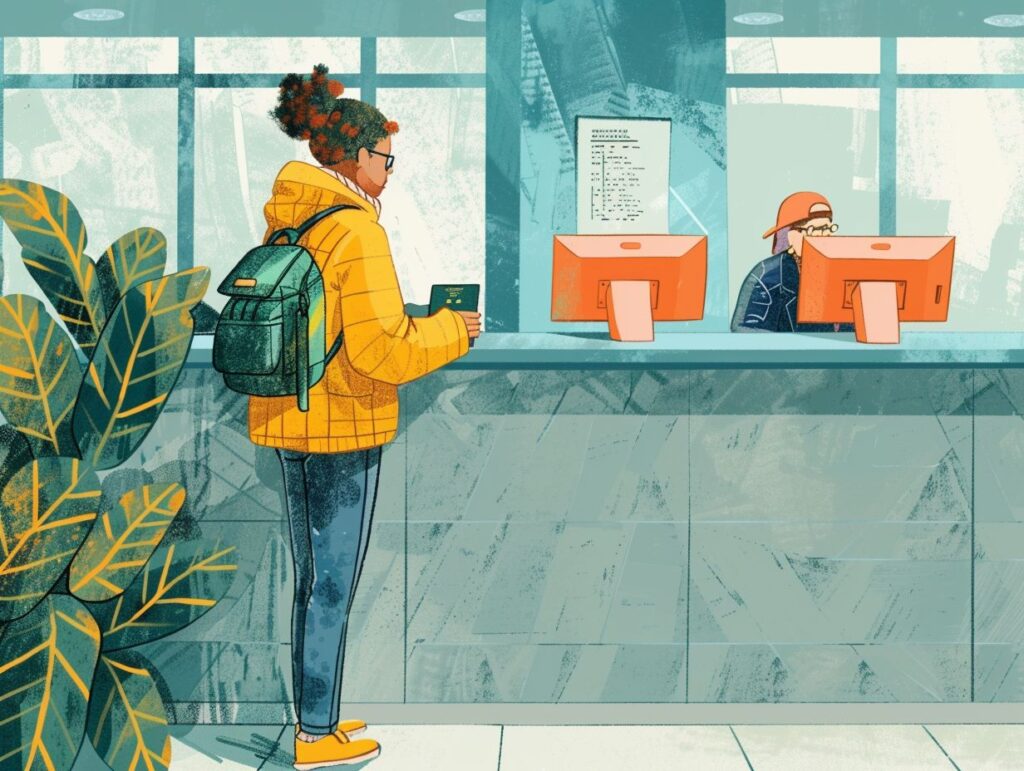
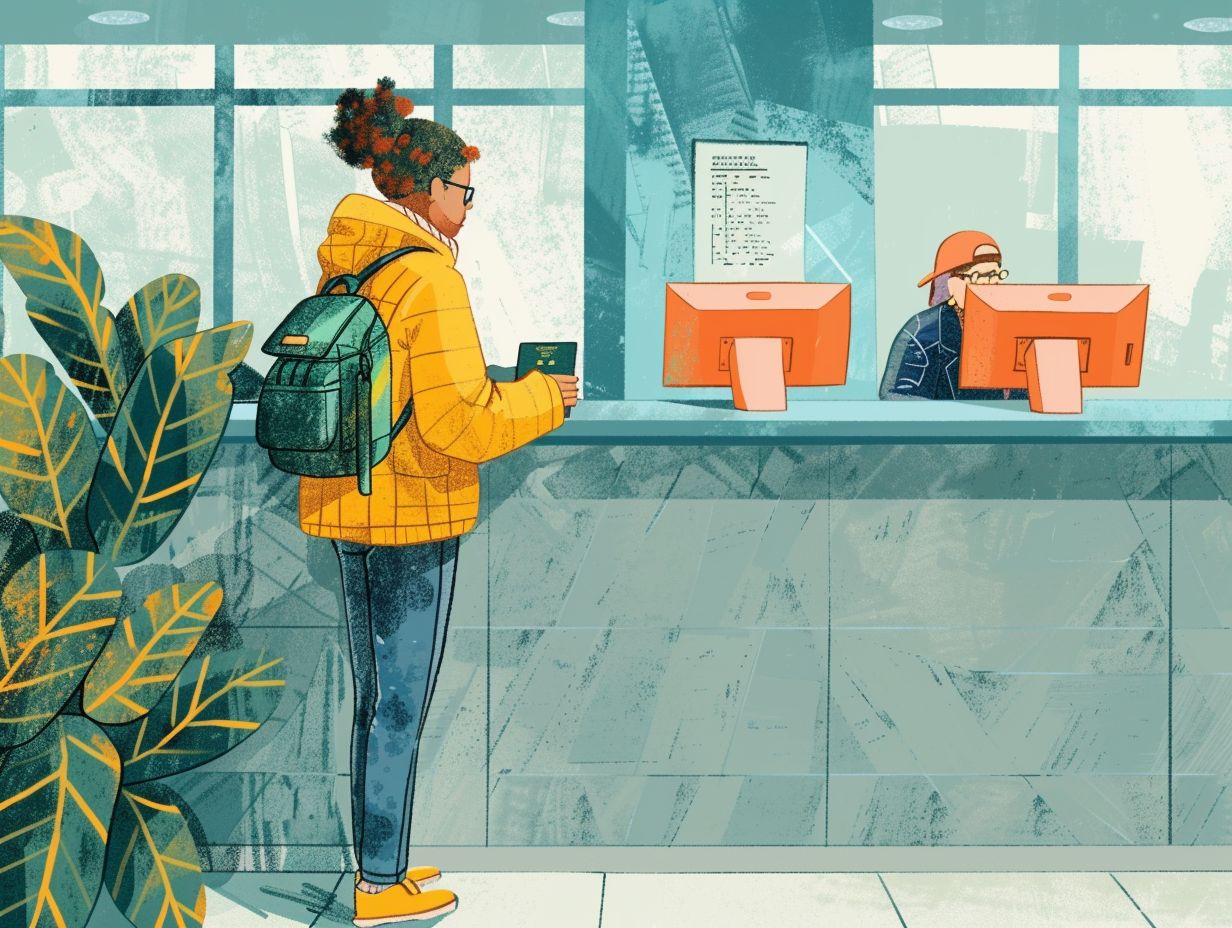
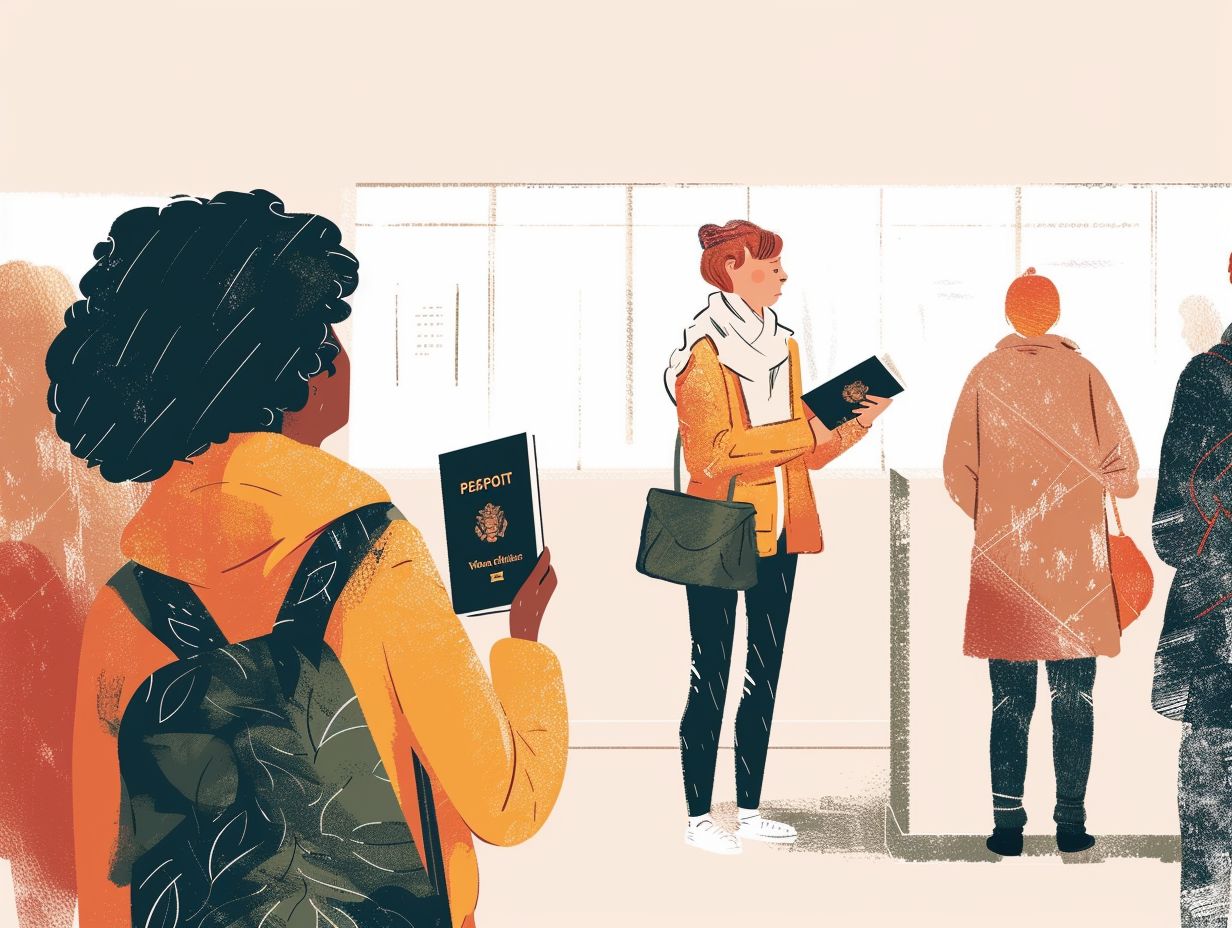
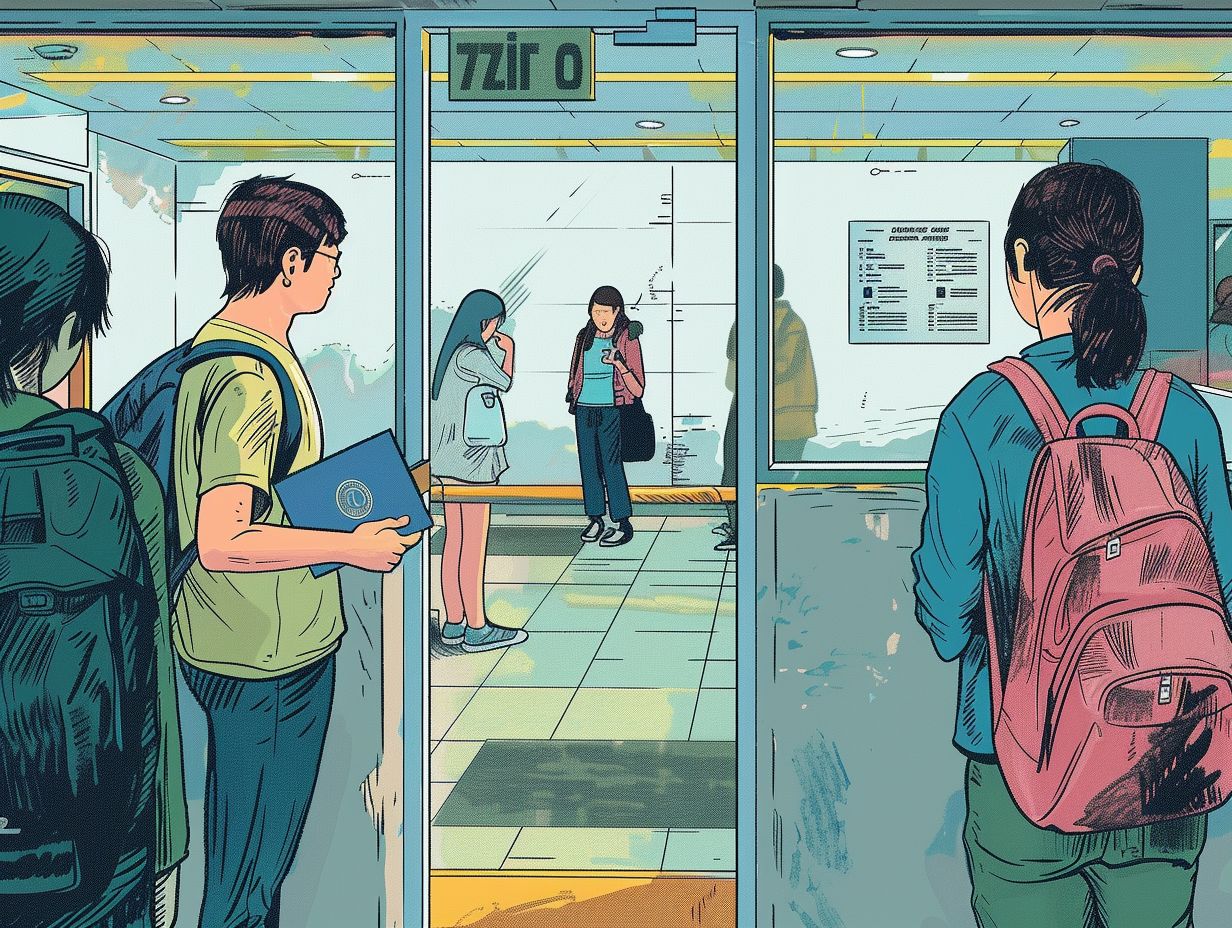












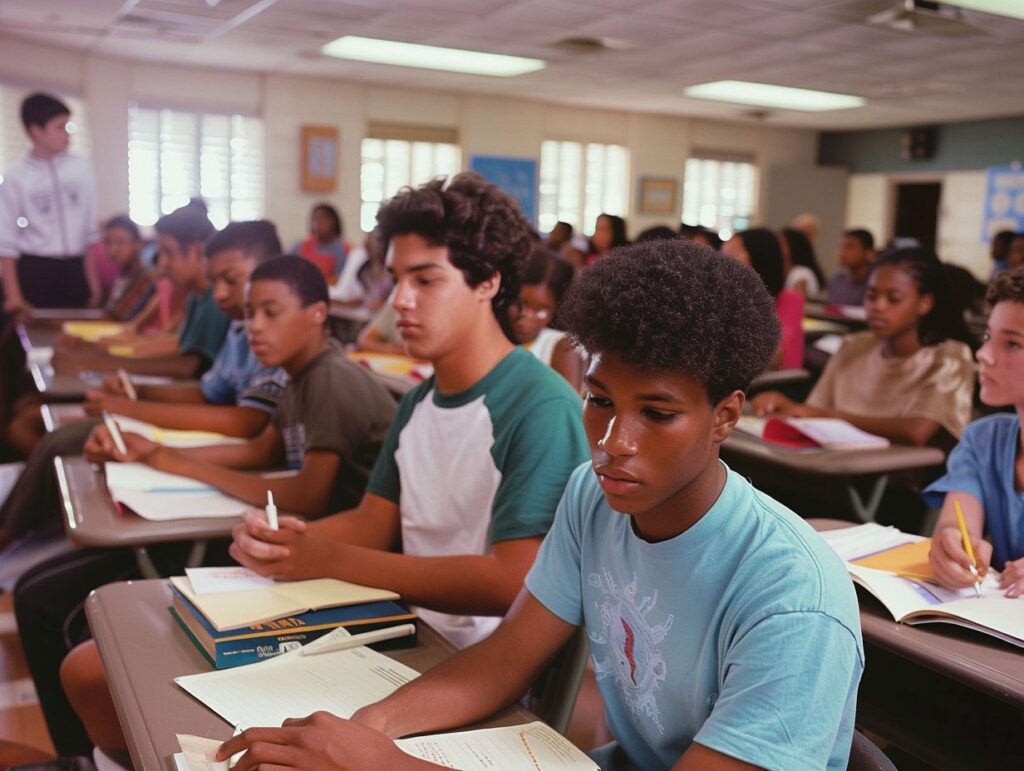









Rate this article:
Average rating 4.5 / 5. Vote count: 2
No votes so far! Be the first to rate this post.
No Comments yet!